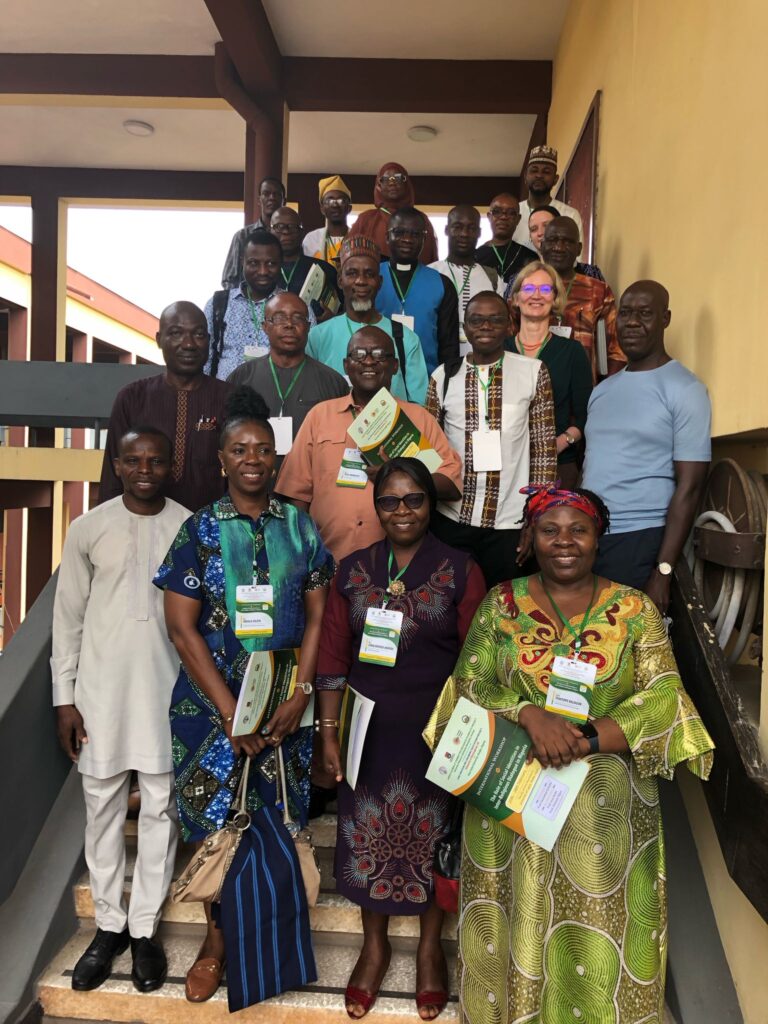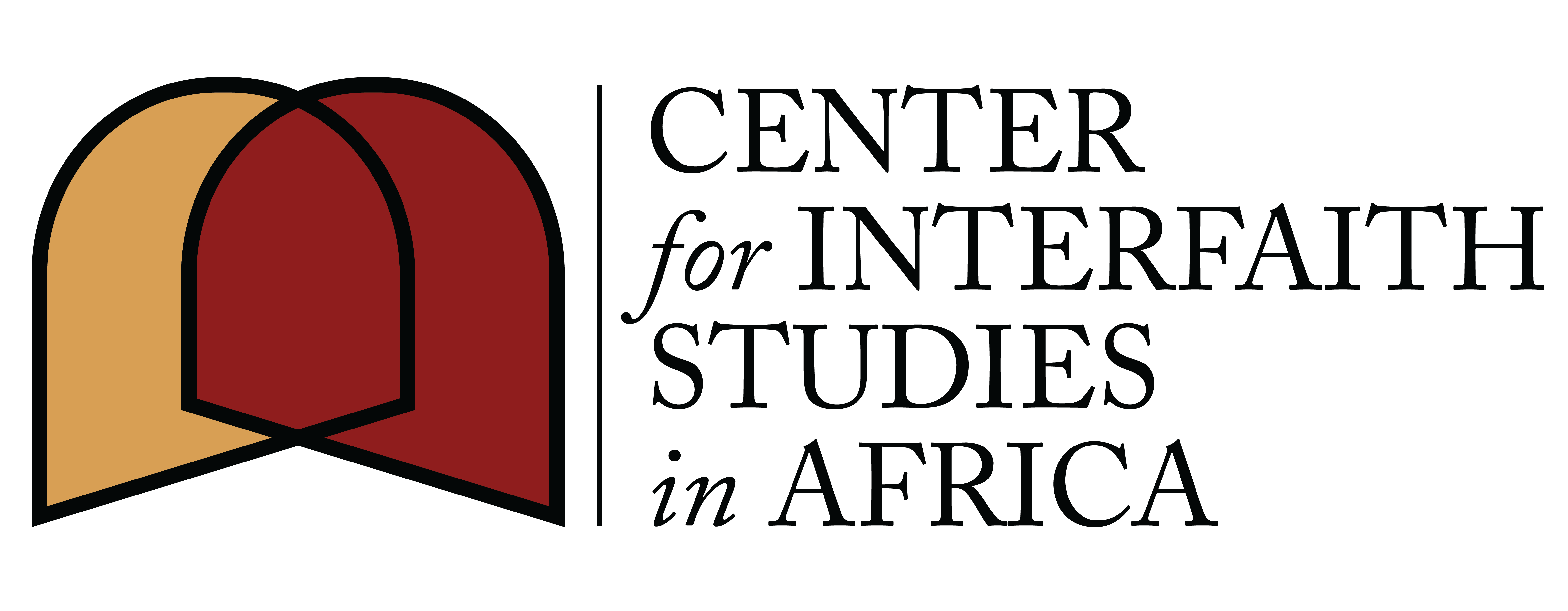
Participants at the workshop at the University of Lagos, Nigeria
The recently concluded International Workshop on The Role of Social Identities in Interreligious Dialogue in Nigeria, held at the University of Lagos from February 25 to 28, 2025, was an enlightening gathering that brought together scholars, religious leaders, and peace practitioners from across Nigeria and beyond. Organized under the Africa Globally Connected Religious Plurality Project, in partnership with the UOB-UNIOSUN-ERC Knowing Each Other Project, the workshop facilitated in-depth discussions on how social identities influence interfaith engagement, particularly within Nigeria’s diverse religious landscape.
The central question guiding the workshop was: How do social identities inform the ways in which Christians, Muslims, and practitioners of African Traditional Religion assert, bridge, and accommodate religious differences in Nigeria’s plural religious settings? The event highlighted how social identities—rooted in ethnicity, culture, gender, and historical narratives—mediate interreligious relations in ways that both foster unity and, at times, create tensions.
Key Themes and Presentations
The workshop featured a diverse lineup of speakers who explored the multifaceted ways in which religious and social identities intersect. Prof. AbdulRasaq Kilani, Chief Imam of the University of Port Harcourt, set the tone with his presentation on Navigating Interfaith Relations in the Niger Delta: Reflections and Lessons. His discussion provided valuable insights into how local communities have developed mechanisms for coexistence despite longstanding tensions and economic challenges.
Another compelling presentation came from Rev. Prof. Sunday Bobai Agang (ECWA Theological Seminary, Jos) and Prof. Danny McCain (University of Jos), who co-presented on Religious Violence in Northern Nigeria: A Theological Reflection. Their work critically examined the role of theological interpretations in either mitigating or exacerbating religious conflicts. They argued for a reexamination of theological teachings to promote a more inclusive and peace-centered approach to interreligious relations.
Oba Dr. Adedayo Adekoya, the Legusen of Ode Ule Kingdom in Ogun State and President of Isese Worldwide, offered a unique perspective on Traditional Values and Religious Pluralism in Nigeria. His presentation underscored the often-overlooked role of African Traditional Religion (ATR) in fostering interfaith dialogue, emphasizing the need for greater recognition of indigenous spiritual traditions within Nigeria’s religious discourse.
Hajia Khadijah Hawaja Gambo, a peace ambassador and acting executive vice chairman of the Kaduna State Peace Commission, delivered a thought-provoking talk on Deradicalization, Interfaith Dialogue, and Female Participation in Radical Movements in Northern Nigeria. She highlighted the importance of women’s voices in interfaith mediation and conflict resolution, particularly in regions where religious extremism has deeply affected communities.
The role of culture and indigenous knowledge in interreligious dialogue was further explored by Prof. Temitope Balogun and Dr. Adeola Faleye, team members of the UNESCO-IFCD-UNIOSUN Cultural Project. Their paper, Yoruba Indigenous Oral Performances and the Mediation of Interfaith Cohesion in Southwest Nigeria, illustrated how storytelling, music, and oral traditions have historically served as tools for interreligious harmony among Yoruba communities.
Challenges and Opportunities in Interfaith Dialogue
One of the recurring themes throughout the workshop was the challenge of balancing religious identity with national cohesion. Prof. Dan Chukwu (Nnamdi Azikwe University) examined this in his presentation on Traditional Belief Systems and Interfaith Relations in Southeast Nigeria. He discussed the interplay between Christianity, Islam, and indigenous belief systems in shaping communal and national identities.
Dr. Oluseyi Atanda, a physician and Ifa priest from Osun State, explored the role of indigenous healing practices in fostering interfaith connections. His presentation, Indigenous Healing Systems and Interfaith Relations in Yorubaland, highlighted how traditional healing practices remain relevant across religious divides, serving as a common ground for engagement.
Another pressing issue discussed was religious extremism. Prof. Haruna Abubakar, a Muslim cleric and director of research at Maryam Abacha American University in Kano, addressed this in his paper Religious Extremism and Interfaith Dialogue in Northwest Nigeria. He proposed strategies for mitigating radicalization, including the promotion of grassroots interfaith initiatives and policy reforms that encourage religious tolerance.
Lessons Learned and the Way Forward
A significant takeaway from the workshop was the recognition that interreligious dialogue in Nigeria cannot be approached in isolation from social, political, and historical contexts. Discussions emphasized that true dialogue goes beyond formal meetings and must be integrated into everyday community interactions.
Additionally, the role of education was highlighted as a critical factor in fostering interfaith understanding. Alhaja Taiwo Obagun-Abdussalam from the Ahmadiyya Muslim Women Association presented a study on The Social Dynamics of Interfaith Relations Among Secondary School Teachers in Lagos State, demonstrating how schools can serve as spaces for religious tolerance and cooperation.
Several presenters also proposed practical steps for deepening interfaith engagement. Dr. Daniel Olisa Iweze (University of Benin) introduced the Kano Covenant, an interfaith peacebuilding initiative that led to the establishment of a faith-based Internally Displaced Persons (IDP) camp for victims of Boko Haram at Uhogua Camp in Edo State. His work exemplifies how interreligious collaboration can lead to tangible solutions for conflict-affected communities.
The workshop concluded with a call to sustain and expand the conversation beyond academia. Prof. Frank Amugo (Rivers State University) emphasized this in his discussion on Interfaith Conflict Resolution Strategies in the Niger Delta, arguing that religious leaders, policymakers, and community stakeholders must work together to implement the insights gained from academic dialogues into real-world peacebuilding initiatives.
The International Workshop on the Role of Social Identities in Interreligious Dialogue in Nigeria provided a vital space for meaningful engagement on issues that lie at the heart of Nigeria’s religious and social fabric. The diversity of perspectives—from theologians to traditional rulers, scholars to peace practitioners—enriched the discussions and reinforced the importance of inclusive approaches to interfaith dialogue.
As Nigeria continues to navigate its religious plurality, the insights from this workshop offer valuable frameworks for understanding and addressing interreligious tensions. More importantly, they provide a hopeful vision for fostering mutual respect and peaceful coexistence across religious and social divides. The commitment of the participants to ongoing dialogue and action ensures that the conversations initiated here will resonate far beyond the walls of the University of Lagos, contributing to a more harmonious and understanding society.
